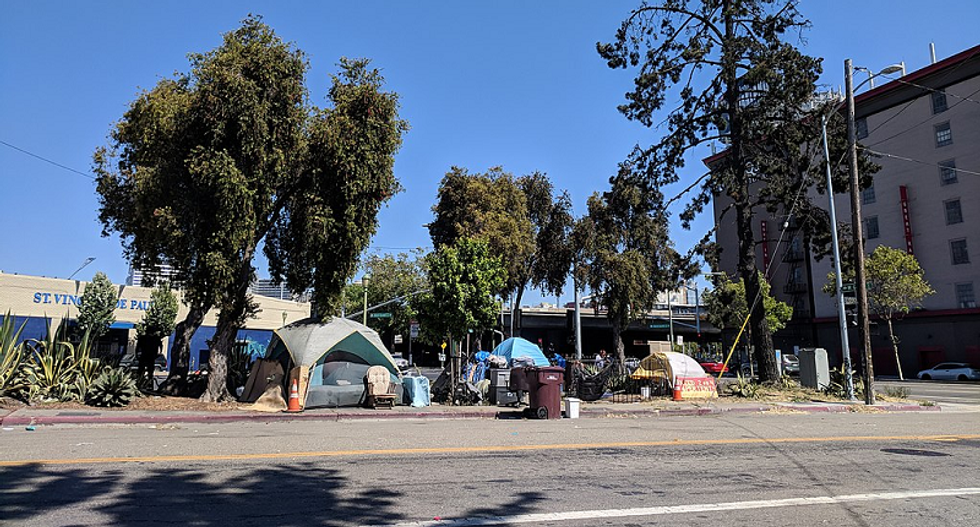Wealthy San Francisco residents actually started a GoFundMe to kill a homeless shelter in their neighborhood


California has long held a reputation for NIMBYism — constant zoning fights and deadlock as people mobilize to stop projects in the public good from being built "in my backyard."
The latest such case involves residents of an affluent part of San Francisco, who are determined to kill a proposed homeless shelter in their community. In fact, they've set up a crowdfunding page on GoFundMe and are begging people to contribute to their legal fees to sue the project into oblivion:
"South Beach, Rincon Hill, Bayside Village, East Cut & Mission Bay residents, businesses and other interested parties are organizing to oppose the Navigation Center proposed for Seawall Lot 330," states the campaign page. "This effort will require your help by showing up to hearings and community gatherings and making a financial contribution to a legal fund."
As of this writing, the campaign has raised over $47,000 of its $100,000 goal — and evidently, the irony of a campaign to kick poor people out of their neighborhood being titled "Safe Embarcadero for All" is lost on its supporters.
Comments by residents about the proposed Navigation Center are shockingly vicious:
As this campaign picked up steam, some people started fighting back, creating a competing GoFundMe page titled "Safer Embarcadero for All," with the goal of supporting the project. As of this writing, this page has raised less money, but has attracted more donors over a shorter time span. One of the donors to the "Safer" campaign is GoFundMe itself, which is headquartered in nearby Redwood City.
California is facing a massive homelessness problem, caused mainly by the state's skyrocketing cost of housing. There is no one cause of the housing shortage — extremely high demand for housing in urban tech and entertainment hubs, conservative property tax policy that disfavors home development, and local ordinances that let wealthy residents veto affordable and dense housing have all contributed to the crunch.
State lawmakers are currently debating a bill that would block aggressive zoning ordinances near transportation hubs like railway stations, making it cheaper to build high-density, diverse housing in places where it's environmentally efficient. A similar bill was introduced last year, but was defeated.